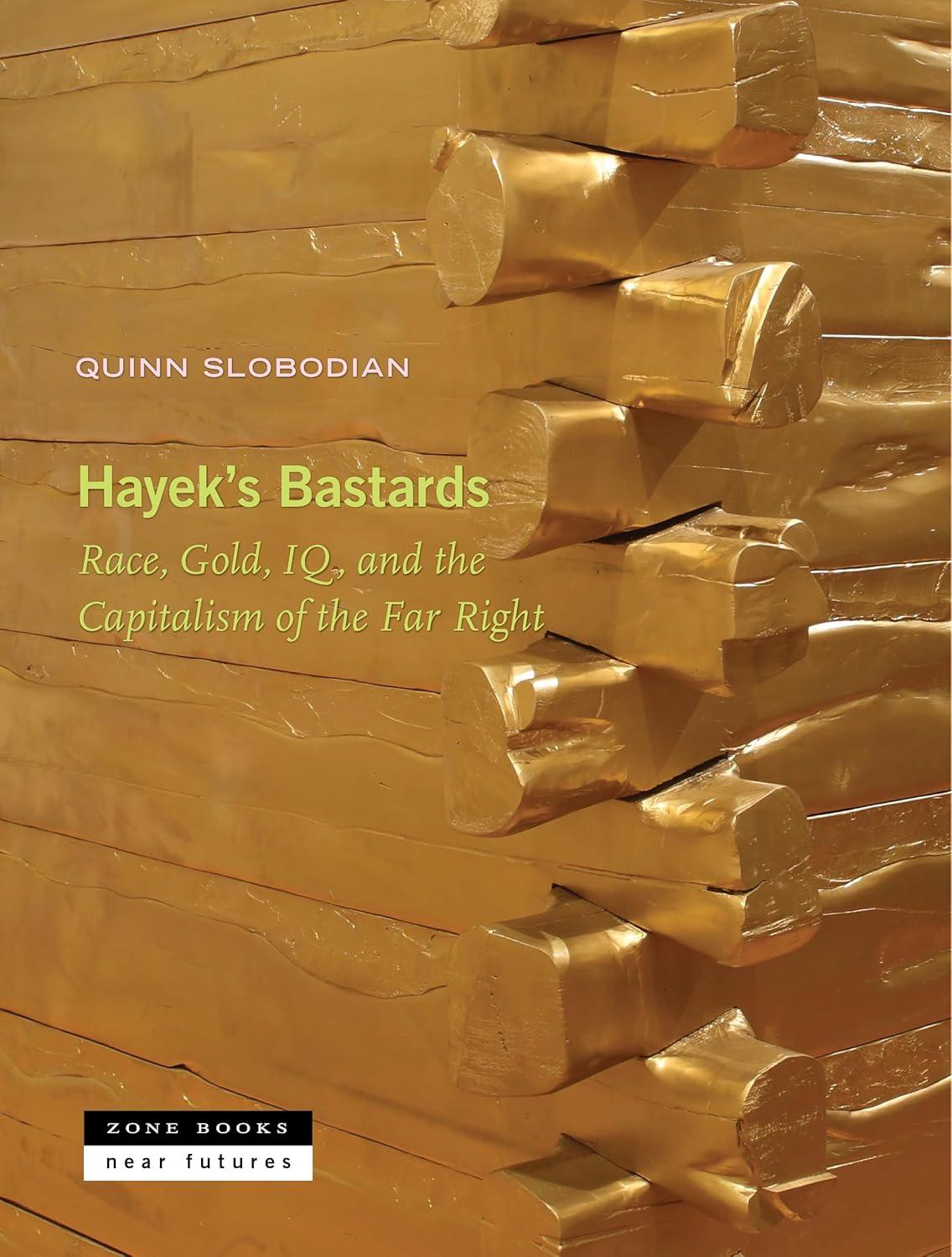Appeals to nature and evolution have long been part of neoliberal rhetoric, going back to Hayek’s interpretation of evolutionary biology in his famous “savanna story.” Beginning in the 1970s, Hayek argued that because Homo sapiens had developed in small, tight-knit troops, the social atomization required for the free market was in fact deeply unnatural. “Socialists have the support of inherited instincts,” he claimed, whereas upholding the cold, impersonal logic of the marketplace was an “acquired discipline.” The sociologist Benjamin Nelson called this state of mutual alienation “universal otherhood,” wherein “all men are ‘brothers’ in being equally ‘others,’” and for Hayek it constituted the bedrock of the free market. Nature, in this telling, is not a mistress who demands obedience but the font of primal affections that must be overcome in the name of capitalist progress.
Slobodian shows how followers of Hayek like Rothbard and Murray turned their master’s logic on its head, taking up his mantle while lapsing “into the very intellectual errors that Hayek himself diagnosed.” These bastard children regarded nature as the cosmic originator of innate hierarchies rather than a force to be mastered. Only a punitive program of reform, they felt, could return humans to the bosom of natural selection, deprivation, and, implicitly, death, as the market would provision health and security exclusively to the most deserving. Slobodian describes how they turned to sociobiology and evolutionary psychology to make their case for the “three hards: hardwired human nature, hard borders, and hard money.” Detailing how these arguments hung together theoretically—composing a moral order shaped by “natural” hierarchies, limits, and restraints—is among the book’s most profound and original aspects.
A crucial piece of this order was what Slobodian calls the “ethno-economy,” the set of arguments that new fusionists developed to link the health of society’s markets to its degree of ethnic homogeneity. As Brimelow wrote in his 1995 book Alien Nation, the free market was embedded in a “societal framework” and could function only “if the institutions in that framework are appropriate.” Those institutions included not just property rights and the rule of law but also “some degree of ethnic and cultural coherence”: social homogeneity, he wrote in a 1989 Financial Post column, “reduces frictions” in the marketplace by introducing a layer of presumed trust between buyers and sellers. Moreover, “some cultures can handle the marketplace’s atomism and impersonality better.” Turning against Hayek’s celebration of global markets and labor force mobility—Slobodian reminds us that the most prominent supporters of “open borders” in the 1980s wrote for the Wall Street Journal editorial page—the champions of Volk capitalism “continued to demand free movement for capital and goods; they simply drew a hard line against certain kinds of people.” This closed-border libertarianism could simultaneously support outsourced production and restricted immigration, facilitating the global movement of capital while preserving Western countries’ (presumably singular and implicitly white) national character.
